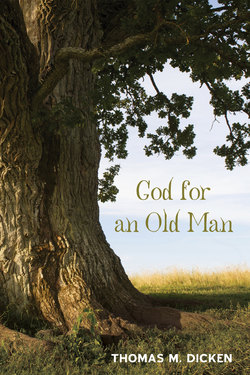Читать книгу God for an Old Man - Thomas M. Dicken - Страница 12
На сайте Литреса книга снята с продажи.
5 HOMELESSNESS
ОглавлениеI have never actually been homeless. My closest approach to that condition was in 1946. During the war years, the federal Office of Price Administration (OPA) had stabilized prices, both income and costs. My family could afford the $20 a month rent for the shotgun house on Garland Avenue in Louisville. My parents used the living room as a bedroom, my older sister used the bedroom, we ate in the kitchen, and my bedroom was the ell room. For the two years of 1943–44, however, an Italian family, who were working in one of the many war-related factories in Louisville, took over my bedroom for themselves and their daughter, who was about my age. I moved in with my sister. We sometimes took turns eating in the small kitchen and other times we all ate together in the kitchen.
When the war ended in 1945, however, the OPA began to step aside and the market began to take over. Many young men and some young women returned from their military life, eager to get married and start a family, as well as taking advantage of the GI Bill to start college. There was a boom as housing developments sprang up everywhere to accommodate this return and the process of “beginning life.” Jobs turned from the war effort to the new possibilities of a long-restrained society. This was back in the day when nations and people had actually noticed that a war was going on. The mood of the nation was upbeat, glad to see its young people return, glad to see an economic boom.
However, all this played out differently for my family. My father was not a young veteran. Our landlord raised the rent substantially on our house, tripling the cost. We had to find something cheaper. It turned out to be two rooms on the third floor of a once-attractive private home on Third Street, which had been subdivided into rental rooms. The bathroom, shared with another family, was on the second floor. The house was not air-conditioned, so we ran a small fan to circulate the air in the summer. My parents used one room, my sister and I the other room.
My mother soon began to walk around the neighborhood, knocking on doors as she tried to find something better for us that we could afford. Several times she found something, but the resident owner looked at the gangly ten-year-old with her and told her they did not accept children. “He is very quiet and well behaved,” my mother would say, as I stood there trying to look very quiet and well behaved.
Though I have never been homeless, I learned in those years that even when things are going well for many people, those who have the least resources are often not able to share in the opportunities available to many other people.
Eventually the boom that improved the lives of many Americans also improved the conditions of our family. My father made a little more money and my parents moved us into a house where I had my own private space, in the attic in the winter and in the basement in the summer.
I was never homeless, but I did learn to treasure my ability, as I became self-supporting, to have a quiet, private space to myself. My personal sense of what space is like was affected by those childhood spaces. Looking back, it is probably not surprising that I chose to live in spacious Montana for 22 years as an adult.
